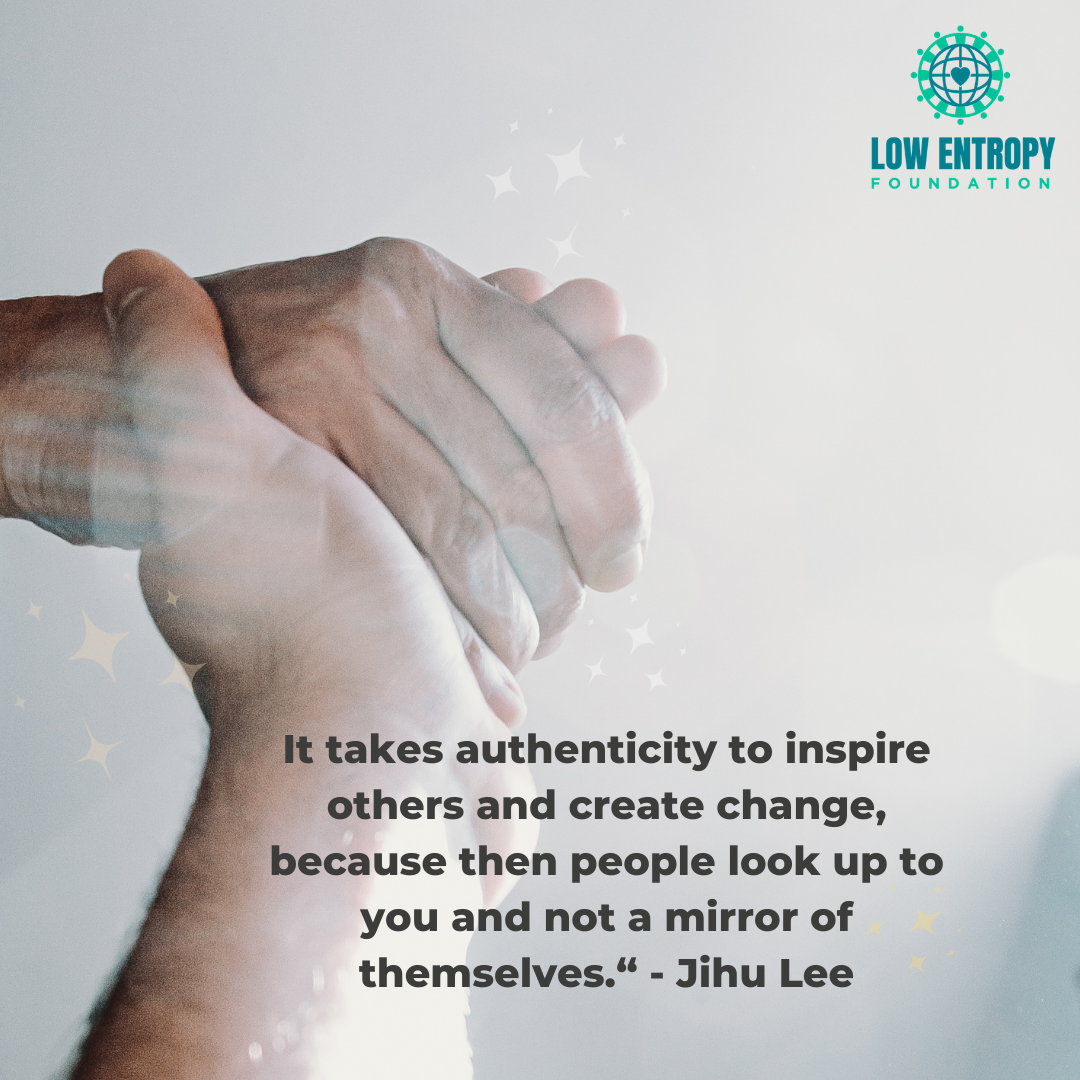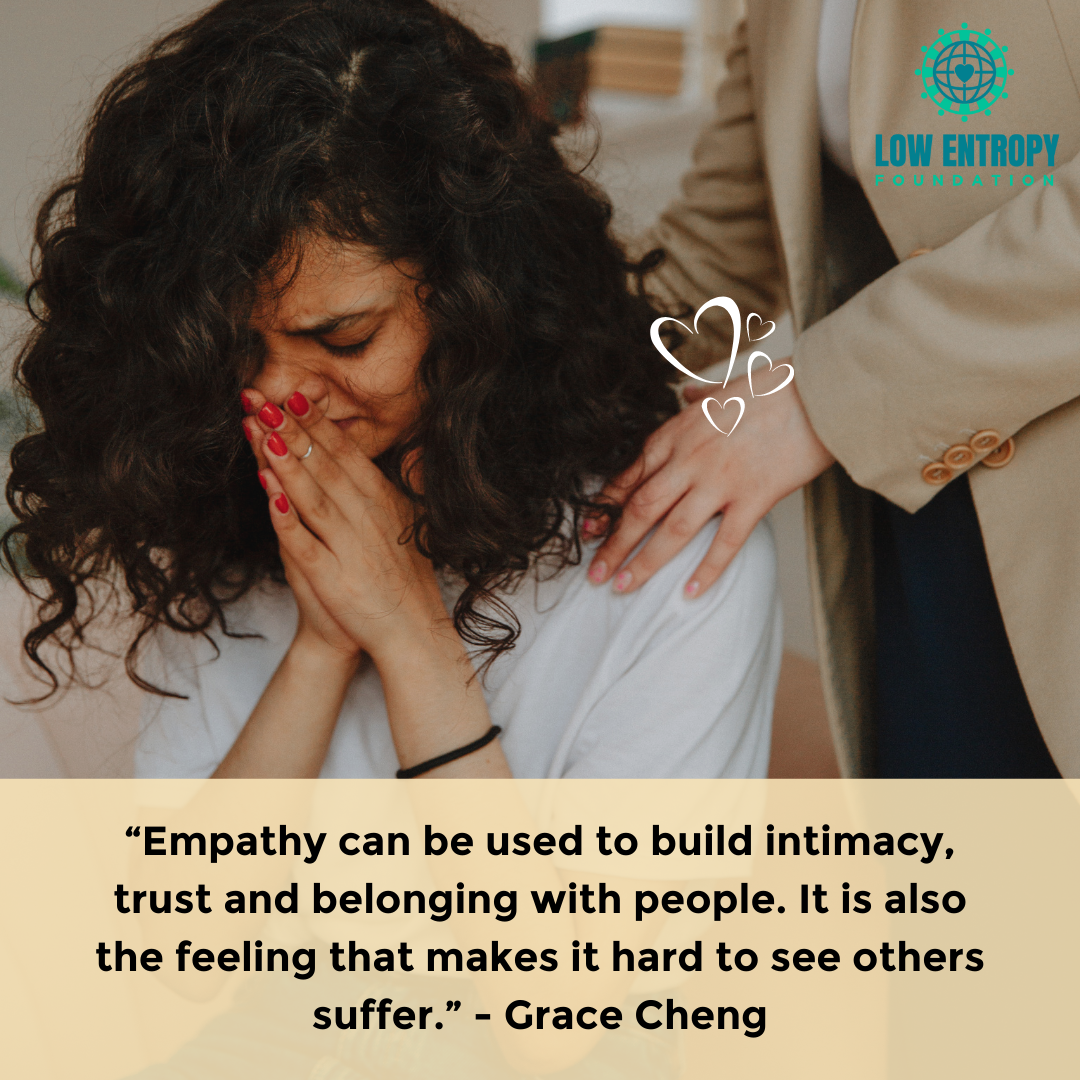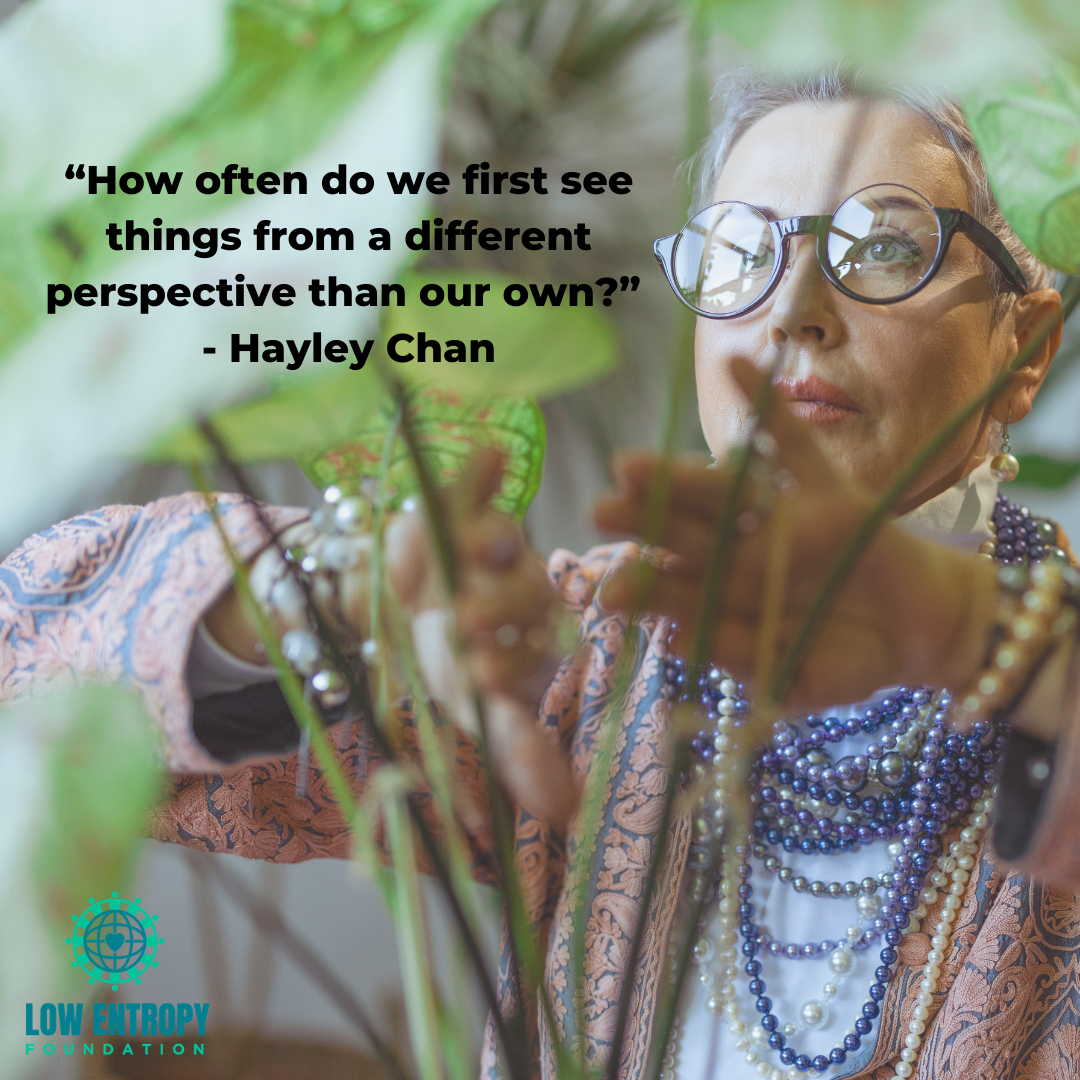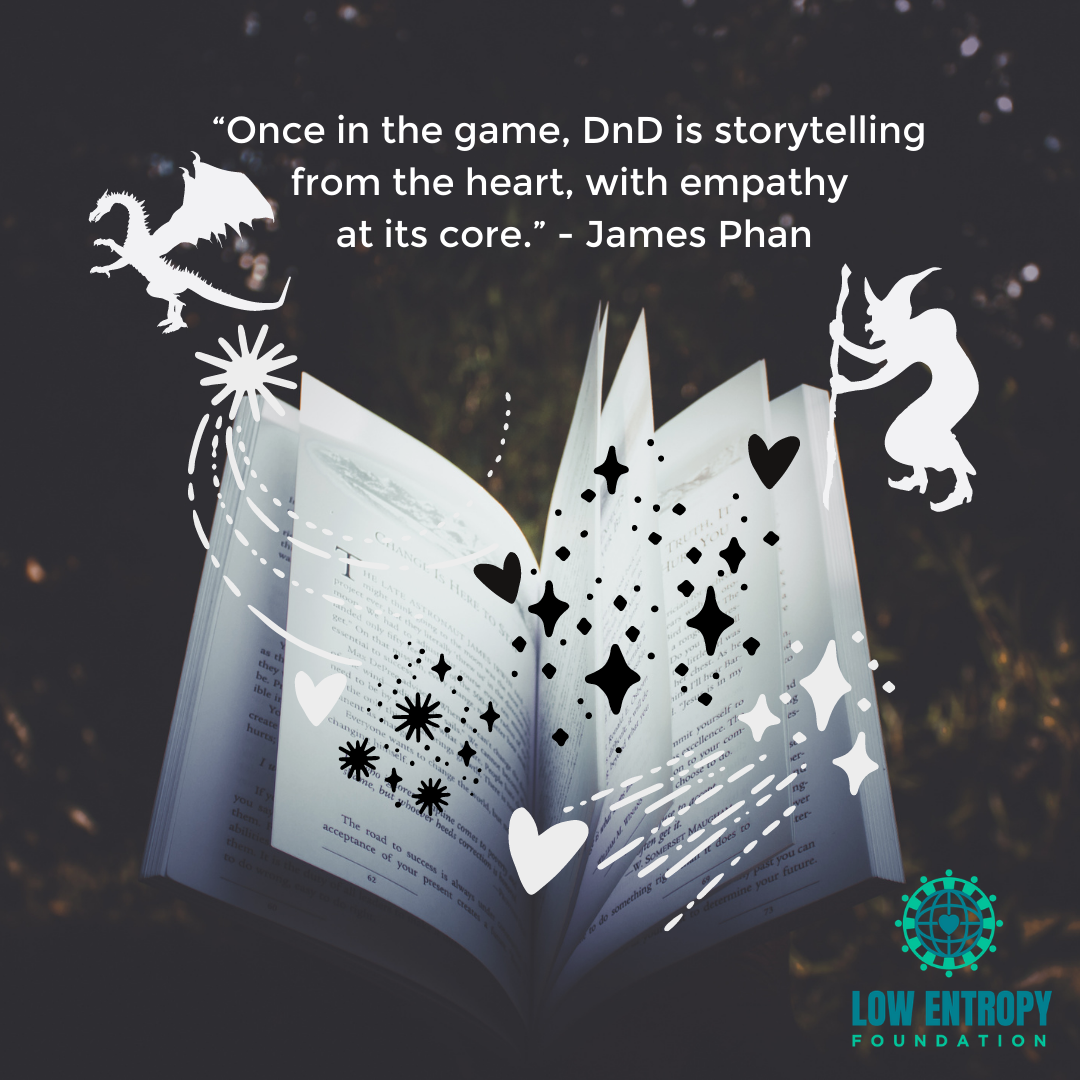Breaking the Mirror
August 13, 2021

Low Entropy Volunteer Writer Jihu Lee examines the fine line between empathy and codependency.
What does empathy mean to you? Some of us may give more to others than we do for ourselves. Others may be there to listen while a friend vents. Whatever you do to exercise empathy, we may have a basic definition in mind of what that means, perhaps something like “putting oneself in another’s shoes to understand their perspective.” But, while we may think we know what empathy is and is not, I have noticed over time that we may engage in behaviors that are deceivingly ’empathetic’ and actually harmful. Does empathy have boundaries beyond which it is no longer considered as such?
The idea of being empathetic with boundaries intact may sound paradoxical. After all, isn’t the point of empathy to touch others’ lives with open arms? To a significant extent, this is certainly the case. Roman Krznaric, Ph.D, author of the article “Six Habits of Highly Empathetic People,” acknowledges that part of empathy means expanding the boundaries of “our moral universe.” But Krznaric adds that empathetic people not only strive to uplift others around them, but to improve their own lives as well. These are the six habits of empathetic people, as Krznaric describes them:
- Cultivate curiosity about strangers.
- Challenge prejudices and discover commonalities.
- Try another person’s life.
- Listen hard and open up.
- Inspire mass action and social change.
- Develop ambitious imagination.
I personally find these observations eye-opening because they lead to a conversation about how empathetic people with boundaries can touch others profoundly. Let’s frame our discussion by looking at what empathy without boundaries is like.
Do you find yourself striving to make someone else’s life better while depriving yourself of your own needs? Do you hesitate to stand up for yourself by holding another person accountable for their actions out of fear that you might upset them? Repeated occurrences of such subservient behavior are no longer characteristic of empathy, but rather, codependency.
Codependency, at its core, is neglecting one’s own well-being to meet others’ needs or to gain approval. This behavior can often start in childhood, where children may feel they deserve love only if they make their parents happy and carry this idea into adulthood. Codependent people often program themselves to be hypervigilant to their parents’, friends’ or partners’ emotions for external validation. But by constantly seeking outside approval to fill the emptiness inside, we lose our sense of self and identity; we become so fixated on the emotions of those around us that we fail to regulate our own. For instance, if you ever find yourself giving unsolicited advice in an effort to “fix” another, it may indicate hypervigilance and the desire for control over an emotional state that is not your own.
Similarly, I believe holding back from encouraging others to outgrow maladaptive coping mechanisms is a sign of wanting to please the other person – an effort to preserve a relationship that survives on our compliance rather than our ability to stand up for ourselves. We lose our sense of self in mirroring someone else. For instance, imagine you have a significant other with unhealthy coping mechanisms to escape the burden of their heavy realities. Rather than encouraging them to seek help, you allow your partner to continue their unhealthy behavioral patterns out of fear that you might lose them if you stood up to them.
How does this relate to empathetic people and their habits? Let’s recall Krznaric’s words, that we strive to better our own lives when expanding our moral universe to others. Essentially, empathetic people excel at reaching out without overextending and balancing care for others with care for themselves.
What we can take away from this idea is that we serve others better – with more understanding and validation – if we are good to ourselves and in tune with our own emotions.
All six habits of empathetic people have a common thread connecting them: the ability to support authenticity while striving to understand and uplift others. It takes authenticity to inspire others and create change, because then people look up to you and not a mirror of themselves. We need to be grounded in our own identity to cultivate a vibrant imagination that uniquely captures us. When others are in emotional distress, we need to hold space and be a listener without desiring to fix them. In a similar manner, we cannot lose ourselves when trying another person’s life or reaching out to a stranger. Before standing up for what’s right, we need to hold onto our sense of self that guides our moral compass.
It certainly isn’t an easy overnight transformation from codependency to empathy. But emotional awareness of codependency alone is a strong step towards change. As a community, I encourage us to remind one another that our own minds and bodies matter. Practice setting boundaries to bring yourself peace, rather than disregarding boundaries and undermining your own well-being in an attempt to keep the peace. Wanting to help others is undoubtedly a strength of one’s character, but helping yourself will synergistically uplift both sides.
Sources:
https://highlysensitiverefuge.com/the-link-between-high-sensitivity-empathy-and-codependency/
https://www.mindbodygreen.com/articles/difference-between-empathy-and-codependent-behavior-for-hsps
https://greatergood.berkeley.edu/article/item/six_habits_of_highly_empathic_people1
Celebrate your identity with the Low Entropy community by sharing what makes you uniquely you at our community site or on any of our social media platforms – we can’t wait to hear your voice!
GET INVOLVED
At Low Entropy, we believe changing the world starts with changing ourselves.
Founded in 2015, Low Entropy Facilitates conversations that encourage diversity and promote inclusivity.
We understand that life can be confusing at times. It can seem challenging and sometimes you may feel like no one really “gets you.” We offer an opportunity to connect with others who have the capacity to understand you.









